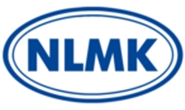Market Segment

September 10, 2020
NLMK Addresses Farrell Strike and Sourcing Woes
Written by Sandy Williams
The strike by United Steelworkers Local 1016-03 at NLMK Pennsylvania is in its second week. NLMK issued a press release on Tuesday addressing some of the questions the public has asked regarding operations and negotiations.
The facility in Farrell continues to operate, manned by salaried employees. The company is finishing production of coils that were ordered before the strike as well as maintaining plant facilities. NLMK Pennsylvania converts slabs into hot-rolled and cold-rolled coils. Production has not shifted to the Indiana facility and customers are aware that supply will be reduced because of the strike.
NLMK refuted USW claims that the PPO health plan the company is proposing would increase employee costs “five-fold.” NLMK hopes to transition employees from a PPO to a high deductible plan that would increase premiums by $50 per month for each year of the contract for a total increase of $200 dollars over four years. The current premium for family coverage is $185, which would increase to $385 by the end of the contract period. Benefit coverage would remain the same.
NLMK said proposed pay increases would be more than double the proposed premium increases. “The move from their PPO to the high deductible plan would actually result in an increase in the average employee’s take-home pay.”
During the last contract period, employees did not receive a wage increase, opting instead to keep their PPO plan and accepting a signing bonus. The wage freeze during the 2016 contract was not connected to plans to install a new walking beam furnace at Farrell as the union has claimed, said the company.
NLMK said the walking beam furnace project was delayed due to Section 232 tariffs that were placed on the import of slabs from its parent company in Russia. During 2018 and 2019, NLMK paid $167 million in tariffs. NLMK USA has been importing slabs from Brazil, which are not subject to tariffs but are subject to quotas. This has caused delays in delivery as well as upside risk to pricing.
Said NLMK, “Recently the Trump administration just canceled the fourth quarter import quota on Brazilian slabs, which is of great concern for NLMK. Finally, Brazilian slabs carry a premium over market pricing since the Brazilian slab manufacturers know we have limited import options and no domestic options for the volumes we need in the USA. In essence, the increased costs and limited supply are in practicality the same as paying tariffs on Brazil slabs.”
NLMK added, “It is ironic that the same United Steel Workers union that represents the NLMK Farrell workers has lobbied extensively for strong import controls and supports the Section 232 tariffs on imported steel slabs that directly impact the continued livelihood and futures of its union members.”







